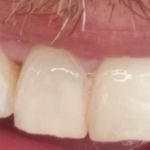How Can Tooth Decay Be Prevented? Effective Oral Health Tips
- Understanding Tooth Decay
- The Importance of Oral Hygiene
- Tips for Preventing Tooth Decay
- Common Mistakes to Avoid
- How Diet Affects Oral Health
Understanding Tooth Decay
Tooth decay, also known as cavities or caries, is a process that occurs when the enamel of your teeth is destroyed by acids produced by bacteria in your mouth. These bacteria thrive on sugars found in food, which lead to plaque build-up. Over time, plaque hardens into tartar, which can cause significant damage to your teeth, leading to cavities and even tooth loss if left untreated.
Understanding how tooth decay develops is the first step in preventing it. Regular visits to your dentist can help spot early signs of decay before they become serious, but the most important prevention efforts are taken daily.
The Importance of Oral Hygiene
Oral hygiene is the cornerstone of preventing tooth decay. Regular brushing and flossing remove food particles and plaque from your teeth and gums. Without proper hygiene, plaque turns into tartar, which cannot be removed by brushing alone. Here’s why good oral hygiene is so important:
- Prevents plaque build-up: Brushing your teeth twice a day helps prevent plaque from building up and hardening into tartar.
- Reduces bacterial growth: Flossing helps eliminate food particles between your teeth, where bacteria love to grow.
- Protects your enamel: Brushing with fluoride toothpaste strengthens your enamel, helping protect against decay-causing acids.
Tips for Preventing Tooth Decay
There are several simple steps you can take each day to help prevent tooth decay:
- Brush your teeth regularly: Brush your teeth at least twice a day with fluoride toothpaste. Make sure to brush for at least two minutes each time to remove plaque effectively.
- Floss daily: Flossing is essential for removing food particles and plaque from between your teeth where your toothbrush can’t reach.
- Use mouthwash: Mouthwash can help kill bacteria, reduce plaque, and provide additional fluoride to protect your teeth.
- Get regular dental check-ups: Visit your dentist for routine exams and professional cleanings to catch problems early and keep your teeth in optimal health.
- Consider dental sealants: Dental sealants are protective coatings applied to the chewing surfaces of the back teeth to prevent cavities from forming.
Common Mistakes to Avoid
While there are many great ways to prevent tooth decay, there are also common mistakes that people make that can increase the risk of cavities:
- Brushing too hard: Brushing too hard can wear down your enamel and irritate your gums. Be sure to brush gently and use a soft-bristled toothbrush.
- Neglecting flossing: Many people forget to floss, but it’s just as important as brushing to remove debris and bacteria from between the teeth.
- Snacking frequently: Snacking on sugary or starchy foods throughout the day provides a constant supply of fuel for cavity-causing bacteria. Stick to healthier snacks, and drink water after meals to rinse away food particles.
How Diet Affects Oral Health
Your diet plays a significant role in the health of your teeth. Sugary foods and drinks, like soda, candy, and juice, provide a constant supply of sugar for bacteria to feed on, which increases your risk of tooth decay. On the other hand, a diet rich in calcium, vitamin D, and other nutrients can help strengthen your teeth and prevent decay. Here are some tips for a tooth-friendly diet:
- Avoid sugary snacks: Limit sugary and acidic foods that can promote bacteria growth.
- Eat calcium-rich foods: Dairy products, leafy greens, and fortified foods help keep your teeth strong and healthy.
- Drink plenty of water: Water helps wash away food particles and neutralizes acids in the mouth, keeping your teeth healthy.
Conclusion: Keeping Your Teeth Healthy
Preventing tooth decay is a combination of good habits, regular care, and attention to your diet. By brushing and flossing regularly, visiting your dentist, and making healthy food choices, you can protect your teeth from decay and maintain your oral health for years to come.
For more information on preventing tooth decay and maintaining good dental hygiene, visit Dentistry Toothtruth for expert advice and tips on keeping your smile healthy.







 Maui Whitening Orlando4.0 (32 review)
Maui Whitening Orlando4.0 (32 review) Bloomington Southside Dental Care3.0 (26 review)
Bloomington Southside Dental Care3.0 (26 review) Christiana Dental Center4.0 (650 review)
Christiana Dental Center4.0 (650 review) Carolina Dental Arts - New Bern Ave4.0 (152 review)
Carolina Dental Arts - New Bern Ave4.0 (152 review) Equitas Health Short North Medical Center3.0 (96 review)
Equitas Health Short North Medical Center3.0 (96 review) Prosthodontics of Madison - Kendra Schaefer, DMD & Christine Roenitz, DMD4.0 (25 review)
Prosthodontics of Madison - Kendra Schaefer, DMD & Christine Roenitz, DMD4.0 (25 review) The Importance of Oral Health Education During Pregnancy for a Healthy Pregnancy
The Importance of Oral Health Education During Pregnancy for a Healthy Pregnancy Best Tips for Brushing Your Teeth Properly for Healthy Gums: Essential Techniques for Oral Health
Best Tips for Brushing Your Teeth Properly for Healthy Gums: Essential Techniques for Oral Health Why Skipping Dental Checkups Can Lead to Bigger Oral Health Problems
Why Skipping Dental Checkups Can Lead to Bigger Oral Health Problems Advantages of Porcelain Dental Restorations
Advantages of Porcelain Dental Restorations How Can Diabetes Cause Tooth and Gum Problems? Preventing and Managing Oral Health Issues
How Can Diabetes Cause Tooth and Gum Problems? Preventing and Managing Oral Health Issues Healthy Habits for Promoting Good Oral Health and Hygiene: Tips for a Healthy Smile
Healthy Habits for Promoting Good Oral Health and Hygiene: Tips for a Healthy Smile